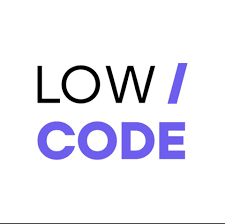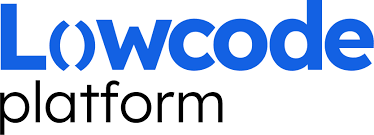Over 60 percent of american companies have struggled to keep their enterprise resource planning projects on track using traditional methods. Agile methodology is rapidly changing the game for these organizations by offering greater flexibility and transparency in ERP implementations. Understanding this approach helps american businesses stay competitive and adapt quickly to evolving needs. This guide breaks down how Agile can deliver real results in even the most complex ERP environments.
Table of Contents
- Defining Agile Methodology In ERP Projects
- Traditional ERP Vs. Agile Implementation Approaches
- Key Benefits Of Agile For ERP Success
- Common Pitfalls And Implementation Challenges
- Best Practices For Agile ERP Deployment
Key Takeaways
| Point | Details |
|---|---|
| Agile Methodology Benefits | Agile methodologies enhance flexibility, collaboration, and rapid delivery in ERP implementations, enabling organizations to quickly respond to changing business needs. |
| Cultural Shift Required | Successful Agile implementation necessitates a cultural shift towards collaboration and transparency within organizations. |
| Common Challenges | Key challenges include organizational resistance and inadequate training, which can impede transition to Agile practices. |
| Best Practices for Deployment | Engaging stakeholders, iterative planning, and robust communication are essential for effective Agile ERP deployment. |
Defining Agile Methodology in ERP Projects
Agile methodology represents a dynamic, iterative approach to project management that prioritizes flexibility, collaboration, and continuous improvement in enterprise resource planning (ERP) implementations. According to research from Ekb Journals, Agile methodologies have transformed traditional ERP project delivery by breaking down complex implementations into manageable, incremental phases.
At its core, Agile for ERP projects focuses on adaptive planning, evolutionary development, and rapid delivery. Arxiv Research highlights how these methodologies have evolved into hybrid frameworks that address the unique challenges of enterprise software implementations. The key characteristics of Agile in ERP projects include:

- Iterative development with short sprint cycles
- Continuous stakeholder engagement
- Flexible scope and requirements management
- Rapid prototype and feedback loops
- Incremental feature deployment
Unlike traditional waterfall approaches, Agile methodology empowers organizations in Saudi Arabia and UAE to respond quickly to changing business needs. By breaking down ERP implementations into smaller, manageable components, businesses can reduce risk, improve transparency, and accelerate time to value. Our ERP System Project Management guide provides deeper insights into how these principles can be practically applied in enterprise environments.
For organizations looking to leverage Agile, implementing the methodology requires a cultural shift towards collaboration, transparency, and continuous learning. This approach is particularly powerful when combined with low-code platforms like our Cortex solution, which enables rapid development and seamless process optimization across complex enterprise ecosystems.
Traditional ERP vs. Agile Implementation Approaches
Enterprise resource planning (ERP) implementations have traditionally followed rigid, linear methodologies that often resulted in complex, time-consuming projects with limited flexibility. Journals Ekb provides a comprehensive comparative study revealing the fundamental differences between traditional and Agile implementation approaches, highlighting the critical evolution in project management strategies.
Traditional ERP implementation approaches typically involve:
- Waterfall methodology with sequential, predefined stages
- Extensive upfront planning
- Fixed scope and requirements
- Limited stakeholder interaction
- Lengthy deployment cycles
In contrast, Agile methodologies offer a more dynamic and responsive framework. CECIIS Research demonstrates that Agile approaches enable organizations, particularly in regions like Saudi Arabia and UAE, to adapt quickly to changing business requirements. The key differentiator is Agile’s ability to break down complex implementations into manageable, iterative sprints that allow continuous refinement and immediate value delivery.
While traditional approaches might seem more structured, they often lead to significant risks such as budget overruns, missed requirements, and delayed implementations.
Our Mastering ERP System Project Management guide explores how modern enterprises can leverage Agile methodologies to mitigate these challenges. By embracing our low-code platform Cortex, organizations can further accelerate their ERP transformation, enabling rapid development and seamless integration across complex business ecosystems.

Key Benefits of Agile for ERP Success
Agile methodologies fundamentally transform enterprise resource planning (ERP) implementations by delivering unprecedented flexibility and strategic responsiveness. Arxiv Research highlights that Agile approaches provide organizations with critical advantages in managing complex technological transformations, particularly in dynamic business environments like Saudi Arabia and UAE.
The key benefits of Agile for ERP success include:
- Rapid Value Delivery
- Enhanced Stakeholder Collaboration
- Continuous Improvement
- Risk Mitigation
- Increased Organizational Adaptability
Organizations implementing Agile ERP strategies experience significant operational improvements. By breaking down complex implementations into manageable sprints, businesses can quickly adapt to changing market demands and technological shifts. Our Benefits of ERP guide explores how these methodological shifts translate into tangible business outcomes.
Our low-code platform Cortex further amplifies these Agile benefits by enabling rapid development, seamless integration, and real-time process optimization. By combining Agile methodologies with advanced technological solutions, organizations can transform their ERP implementations from traditional, rigid projects into dynamic, responsive business transformation initiatives that drive competitive advantage and operational excellence.
Common Pitfalls and Implementation Challenges
Agile ERP implementation is not without significant challenges that can derail even the most well-intentioned digital transformation efforts. Arxiv Research reveals that organizations frequently encounter complex barriers when transitioning to Agile methodologies, particularly in enterprise environments across Saudi Arabia and UAE.
The most critical implementation challenges include:
- Organizational Cultural Resistance
- Insufficient Training and Skills
- Inadequate Stakeholder Alignment
- Communication Breakdowns
- Unrealistic Expectations
- Resource Allocation Challenges
Arxiv Integration Study demonstrates that successfully navigating these challenges requires a strategic, nuanced approach. Many organizations struggle with fundamental mindset shifts, where traditional hierarchical structures clash with Agile’s collaborative, iterative principles. Our ERP Readiness Assessment guide provides comprehensive strategies for mitigating these implementation risks.
By leveraging low-code platforms like Cortex, businesses can dramatically reduce implementation complexity. These platforms enable rapid adaptation, real-time workflow modifications, and seamless integration, effectively addressing many common Agile implementation challenges. The key is creating a flexible technological ecosystem that supports continuous improvement and empowers teams to respond quickly to evolving business requirements.
Best Practices for Agile ERP Deployment
Agile ERP deployment requires a strategic, nuanced approach that goes beyond traditional implementation methodologies. IJFMR Research highlights the critical importance of developing a hybrid implementation strategy that balances structured planning with flexible execution, particularly in dynamic business environments like Saudi Arabia and UAE.
Key best practices for successful Agile ERP deployment include:
- Comprehensive Stakeholder Engagement
- Iterative Sprint Planning
- Continuous Training and Skill Development
- Robust Communication Frameworks
- Flexible Scope Management
- Regular Performance Monitoring
Science Pub Research emphasizes that successful implementations leverage technologies that support rapid adaptation. Our ERP System Development Guide provides deeper insights into creating resilient deployment strategies that minimize risks and maximize organizational value.
Our low-code platform Cortex plays a transformative role in Agile ERP deployment by enabling real-time process optimization, supporting runtime workflow changes, and providing unlimited user capabilities. By integrating advanced technological solutions with Agile methodologies, organizations can create a dynamic implementation ecosystem that responds quickly to evolving business requirements and drives sustainable digital transformation.
Unlock Agile ERP Success with Singleclic Solutions
Agile ERP implementation can be complex and challenging. Organizations often struggle with cultural resistance, shifting requirements, and the need for rapid adaptability. This article highlights how Agile’s iterative development, stakeholder collaboration, and continuous improvement are essential to overcoming these hurdles. At Singleclic, we understand these pain points and provide tailored solutions that empower businesses across KSA, UAE, and Egypt to navigate Agile transformations smoothly while accelerating value delivery.
Our Arabic-enabled low-code platform Cortex brings Agile principles to life by enabling real-time process optimizations and seamless workflow changes without downtime. Combined with our deep expertise in ERP and CRM implementation, including Odoo and Microsoft Dynamics 365, Singleclic helps organizations reduce risk and drive lasting operational excellence.
Explore our ERP System Project Management insights and leverage the power of Agile with innovative technology.

Ready to transform your ERP journey with Agile methodologies and cutting-edge solutions? Visit Singleclic today to discover how we can help you elevate your business beyond digitalization toward true optimization. Start accelerating your success now with Mastering ERP System Project Management and our industry-leading Agile approaches.
Frequently Asked Questions
What is Agile methodology in ERP projects?
Agile methodology is a dynamic, iterative approach focused on flexibility, collaboration, and continuous improvement, transforming traditional ERP project delivery into manageable, incremental phases.
How does Agile differ from traditional ERP implementation approaches?
Unlike traditional waterfall methodologies, Agile allows for iterative development with shorter cycles, continuous stakeholder engagement, flexible scope management, and rapid prototyping, which together enable quicker adaptations to changing business needs.
What are the key benefits of using Agile for ERP implementations?
Agile methodologies provide rapid value delivery, enhanced stakeholder collaboration, continuous improvement, risk mitigation, and increased adaptability to organizational changes and technological shifts.
What challenges might organizations face when implementing Agile for ERP?
Organizations may encounter challenges such as cultural resistance, insufficient training, inadequate stakeholder alignment, communication breakdowns, unrealistic expectations, and resource allocation issues during Agile ERP implementation.









